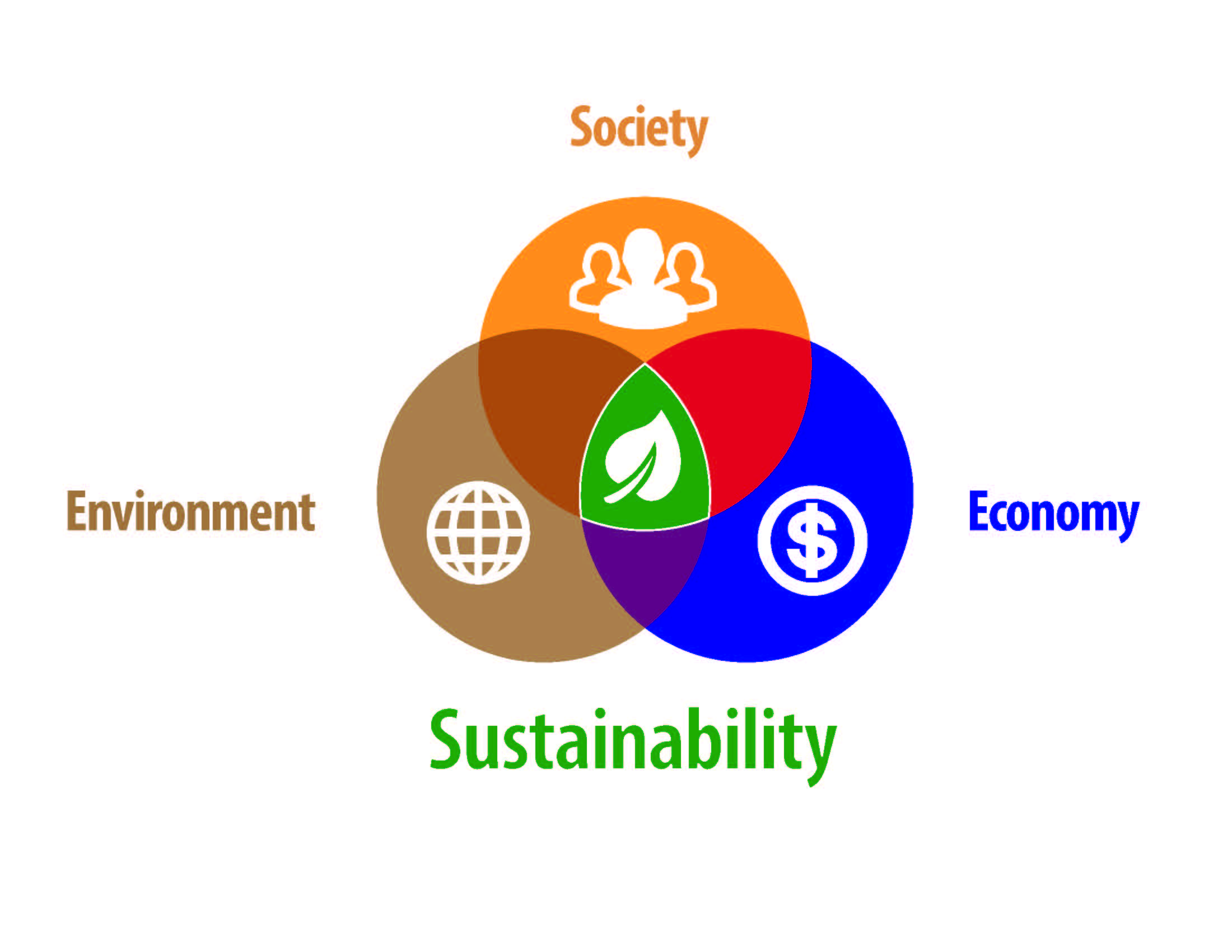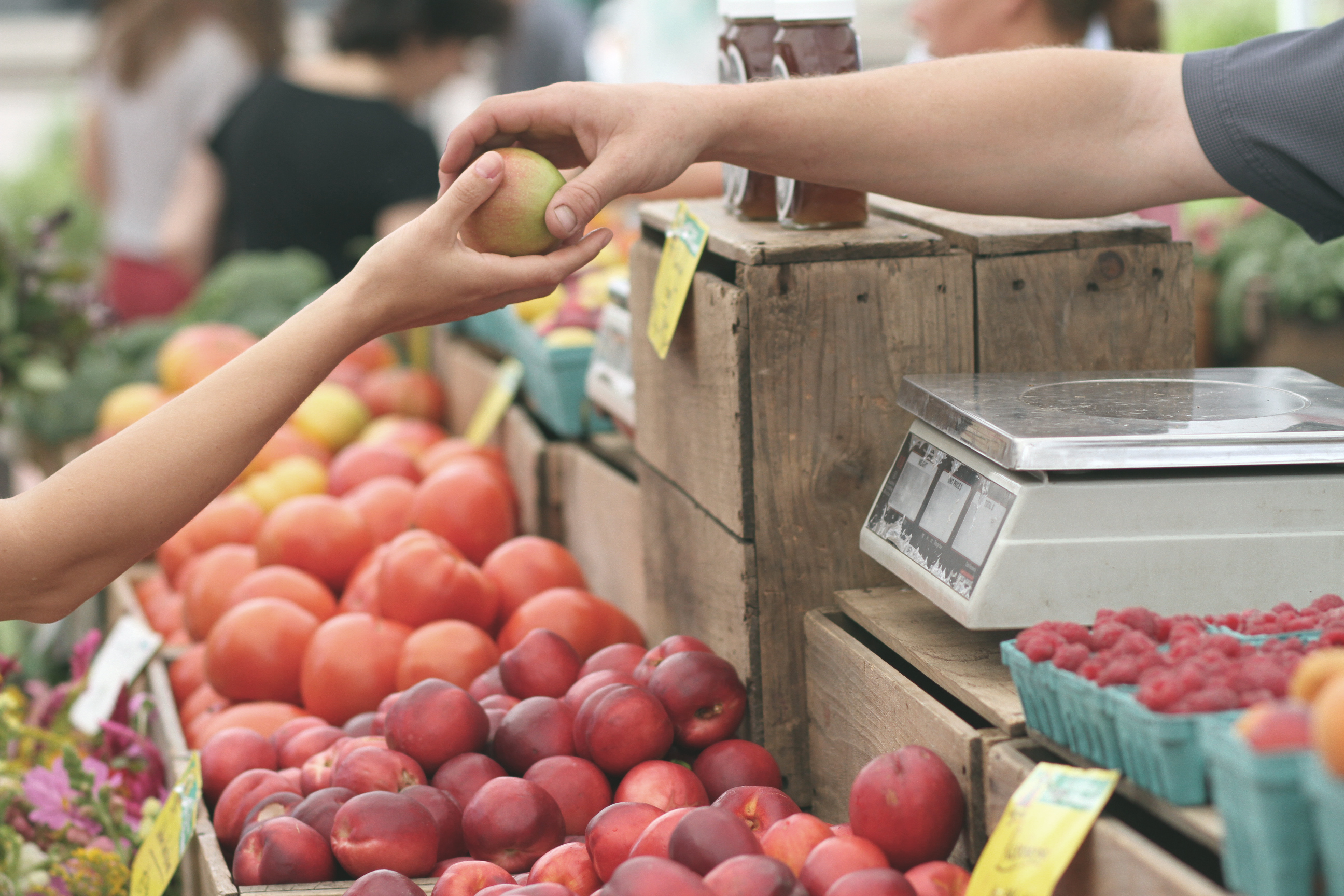Three Facets in Practice
At Iowa State University, the Live Green! Initiative seeks to educate, engage and empower students, faculty, staff, campus visitors and more about the all-encompassing opportunity of living a sustainable life. Living sustainably makes a powerful impact on us individually, but also collectively on our colleagues, friends, families and communities. This impact translates into leaving the world a better place for future generations.
What exactly does that mean, to live sustainably?
Living sustainably means taking a look at our daily opportunities to do something that will benefit someone in the future. Therefore, sustainability really falls into three broad categories that are constantly interweaving with one another: environmental, social and economic sustainability. When we choose to pursue opportunities in all of these components, as the Venn diagram below indicates, we are living a truly sustainable life.

Many of us are already actively engaged in sustainable activities (whether it be environmental, social, economic or a mix of two or three) and are not fully recognizing the significance of our actions. Sustainability goes much further than the traditional idea of what it means to live green -- therefore, we all have countless opportunities to make a real, sustainable difference during our lifetimes.
Below, we offer a breakdown of these three components of sustainability, offering how you, no matter where you are in the world, can seize opportunities to make your part of the planet just a little more green!
 Environmental Sustainability
Environmental Sustainability
 Here is a small sampling of opportunities to explore that support the natural world around us:
Here is a small sampling of opportunities to explore that support the natural world around us:
- Gardening, whether indoor or outdoor, has a variety of environmental benefits. For instance, plants release oxygen and absorb toxins already present in the air, as well as, if you grow your own food, can offer an alternative to buying produce at the grocery store, which saves on fuel emissions and other travel costs.
- Composting keeps organic matter out of landfills, allowing it to decay cleanly, as well as offers a sustainable alternative for your garden's fertilizer.
- Green Cleaning with sustainable cleaning products keeps a wide array of harsh chemicals out of the air, which can be harmful to both people and animals.
- Upcycling everyday products into something new keeps still-useful items out of the landfill.
- Rec'ing Responsibly with "No Trace" principles allows us to enjoy the natural world in a sustainable way that avoids human-created impacts.
In addition, be sure to check out Iowa State's diversity of environmentally-sustainable student organizations, as well as the various campus initiatives that both protect and support a healthy planet.
 Social Sustainability
Social Sustainability
 Here are a few ways you can make a meaningful impact that benefits both you and your community:
Here are a few ways you can make a meaningful impact that benefits both you and your community:
- Volunteering for a cause or event allows us to meet a network of other passionate and like-minded people, while also providing an opportunity to make a tangible difference in our community.
- Experiencing New Cultures through study abroad opportunities, campus and community events, as well as casual, day-to-day discussions, broadens our perspectives of the world and the people in it.
- Performing Small Acts of Kindness, such as offering compliments, helping with the groceries or even opening the door for someone, helps us create and nurture positive relationships, while also creating small boosts of happiness for all involved.
- Taking Time to Relax with activities like journaling or yoga gives us time to de-stress, aiding in both physical and emotional health, and helps to restore our energy levels.
- Shopping Fair Trade supports the beautiful work of artisans from around the world while providing a quality, one-of-a-kind product in return.
Be sure to check out Iowa State's multiple socially-sustainable student organizations, as well as the various campus initiatives that promote diversity, community, as well as other commitments that benefit society as a whole.
 Economic Sustainability
Economic Sustainability
 Be mindful of the various resources and tools available to you, as well as opportunities to make an economic impact in both your life and the lives of others:
Be mindful of the various resources and tools available to you, as well as opportunities to make an economic impact in both your life and the lives of others:
- Shopping Local boosts the local economy when we shop at small businesses, farmer's markets and Community Supported Agriculture (CSA) models.
- Creating a Budget allows us to better plan and coordinate how we finance our lifestyles, ensuring responsible financial behaviors.
- Saving on Energy Costs by unplugging unused electronics, adjusting the thermostat and auditing your energy use can help eliminate some extra costs each month.
- Purchasing Reused Items, such as clothing, electronics and small kitchen appliances and tools, at secondhand and thrift stores present an affordable option when compared to buying something new from the store.
- Understanding Finances with tools and resources, such as the ISU Student Loan Office (managing student loans), Iowa State's Financial Counseling Clinic (financial wellness education and counseling) and various financial health classes provided by ISU Extension and Outreach, create opportunities to learn more about and to grow our skills in successful financial behaviors.
Be sure to check out Iowa State's economically-sustainable student organizations, as well as the multiple campus initiatives that support a healthy, local economy, beneficial spending habits, as well as planning for a successful financial future.